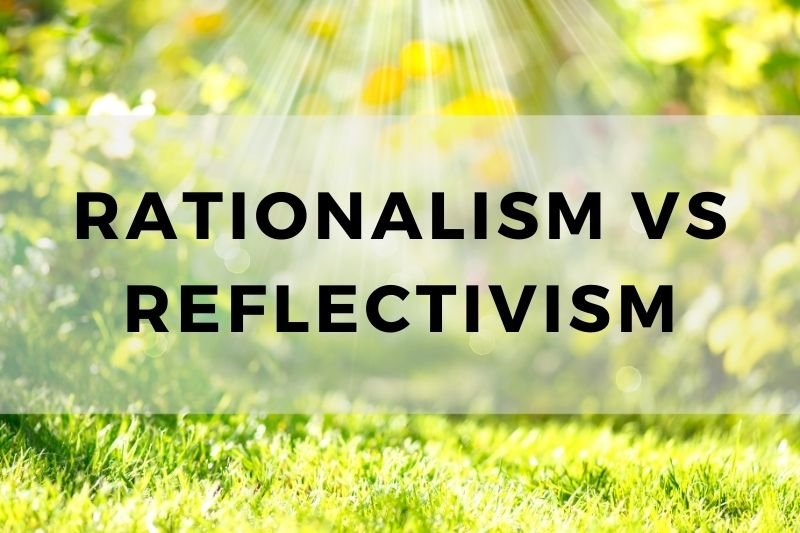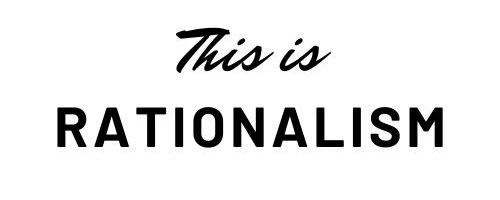
Rationalism and Reflectivism are two key philosophical approaches to understanding truth. Both offer distinct views on how we acquire knowledge. Rationalism emphasizes reason as the primary source of truth, while Reflectivism focuses on the importance of reflection and context in shaping our understanding.
This article explores the core principles of each philosophy. It highlights their similarities, differences, and how they influence our perception of truth. Understanding these philosophies can help clarify the debates surrounding knowledge and belief. Let’s dive into how Rationalism and Reflectivism shape the way we see the world.
What is Rationalism?
Rationalism is the belief that reason is the primary source of knowledge. It argues that we can know the truth through intellectual and logical processes, without relying on sensory experience. Rationalists believe certain truths are innate or can be deduced through reasoning. For example, mathematical truths or moral principles are seen as universal and unchanging. Famous rationalists like René Descartes and Immanuel Kant argued that reason leads to a deeper understanding of the world. In Rationalism, knowledge is built upon clear, logical foundations that don’t depend on external factors like perception.
What is Reflectivism?
Reflectivism is a philosophy that emphasizes the role of reflection in understanding truth. It argues that knowledge is shaped by our experiences, context, and personal perspectives. Unlike Rationalism, Reflectivism doesn’t see reason as the only source of truth. Instead, it focuses on how we interpret and reflect on the world around us. This philosophy suggests that truth is not absolute but can vary based on individual experience and societal influences. Key thinkers in Reflectivism argue that reflection allows us to critically examine our beliefs and adjust them based on new insights and contexts.
Rationalism vs Reflectivism: Similarities
#1. Both Focus on Knowledge Acquisition
Both Rationalism and Reflectivism seek to explain how we acquire knowledge. Rationalism emphasizes that reason is the primary tool for gaining truth, while Reflectivism highlights the importance of personal reflection and experience. Despite their different methodologies, both philosophies are concerned with how we come to understand the world around us.
#2. Influence of Philosophical Thought
Both philosophies have been significantly shaped by influential philosophers throughout history. Rationalism has been molded by figures like René Descartes, Baruch Spinoza, and Gottfried Wilhelm Leibniz. Reflectivism, on the other hand, draws from thinkers such as David Hume, Friedrich Nietzsche, and Jean-Paul Sartre. These key thinkers have helped form the foundational ideas of each philosophy, shaping their perspectives on knowledge.
#3. Emphasis on Understanding Truth
At the core of both Rationalism and Reflectivism is the pursuit of truth. Rationalists hold that truth can be discovered through reason alone, believing it is universal and objective. Reflectivists argue that truth is shaped by personal experiences and context, suggesting it is more subjective and variable. However, both approaches share the same goal: to uncover the truth behind our beliefs and perceptions.
#4. Use of Reasoning
Although Reflectivism focuses on personal reflection, reasoning still plays an important role in its approach. Reflectivists use logic and analysis to evaluate their experiences and refine their understanding of truth. Rationalists, in contrast, rely solely on logical reasoning as their method for uncovering universal truths. Despite their differing emphasis, both philosophies involve the application of reasoning to gain knowledge.
#5. Exploration of Human Consciousness
Both Rationalism and Reflectivism engage with the nature of human consciousness. Rationalists view reason as a function of the mind, a tool for uncovering objective truths. Reflectivists, however, see reflection as a way to understand how our consciousness shapes our knowledge, influenced by individual experiences and social contexts. In both cases, the focus is on how our mental processes contribute to our understanding of the world.
#6. Challenge to Empiricism
Both Rationalism and Reflectivism present challenges to Empiricism, which emphasizes sensory experience as the primary source of knowledge. Rationalists argue that reason alone can provide knowledge independent of the senses. Reflectivists contend that personal reflection, not mere sensory input, leads to a deeper understanding of truth. In contrast to Empiricism, both philosophies stress that knowledge can be gained without relying solely on sensory data.
#7. Influence on Modern Thought
The ideas of Rationalism and Reflectivism continue to have a profound impact on modern philosophy and other fields. Their influence can be seen in ongoing debates in epistemology, psychology, and sociology. Philosophers today still draw from both approaches to discuss the nature of truth, knowledge, and belief. These two schools of thought have contributed to the development of modern intellectual thought in significant ways.
Key Differences Between Rationalism and Reflectivism
#1. Source of Knowledge
Rationalism holds that reason is the primary source of knowledge. It argues that truth can be known through intellectual deduction and logic. Reflectivism, however, believes that knowledge comes from reflection on personal experience and context. For Reflectivists, knowledge is shaped by how individuals process and interpret their experiences.
#2. Role of Sensory Experience
In Rationalism, sensory experience is not the primary means of gaining knowledge. Rationalists believe that true knowledge is innate or can be discovered through reason alone. Reflectivism, on the other hand, places more importance on sensory experience. Reflectivists believe that our reflections on experiences help us understand the world, making sensory input a key factor in shaping knowledge.
#3. View of Truth
Rationalists see truth as objective and universal. They argue that reason can uncover unchanging truths that apply to all people. Reflectivists, however, see truth as subjective and context-dependent. They believe that truth varies based on individual perspectives and societal influences, rather than being universally fixed.
#4. Approach to Reality
Rationalism views reality as something that can be understood through logical principles and reasoning. It emphasizes discovering objective truths about the world. Reflectivism, in contrast, sees reality as something subjective, shaped by personal reflection. It emphasizes understanding how individual experiences influence one’s perception of reality.
#5. Relationship to Empiricism
Rationalism contrasts with Empiricism, which emphasizes knowledge gained through sensory experience. Rationalists argue that knowledge is not dependent on the senses, but on reason. Reflectivism also challenges Empiricism, but for a different reason. Reflectivists believe that reflecting on our experiences gives us deeper insights into truth than simply relying on sensory perception.
#6. Focus on Reason vs Experience
Rationalism prioritizes reason as the path to knowledge. It emphasizes logic, deduction, and intellectual processes. Reflectivism focuses on experience and reflection, suggesting that knowledge arises from how we interpret and think about our experiences. For Reflectivists, experiences are key to understanding, while Rationalists depend on pure reasoning.
#7. Universality vs Subjectivity
Rationalism emphasizes universality in knowledge, seeking truths that are valid for all people, regardless of their context. Reflectivism, by contrast, highlights subjectivity. It believes that each individual’s experiences and cultural background shape their understanding of truth. Reflectivists argue that knowledge cannot be universally applied to everyone.
Closing Thoughts
Rationalism and Reflectivism offer distinct approaches to understanding truth and knowledge. While Rationalism prioritizes reason and universal truths, Reflectivism emphasizes the role of personal experience and context. Both philosophies challenge traditional views of knowledge, yet they do so in different ways.
Understanding these differences helps us navigate the complexities of human perception and belief. Whether through reason or reflection, both paths offer valuable insights into how we come to know and understand the world. By exploring both perspectives, we can deepen our understanding of the nature of truth.
